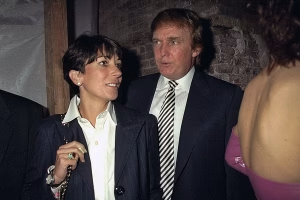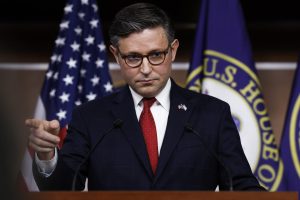In 2025, documents released by the House Oversight Committee have drawn attention to a 2013 email involving Jeffrey Epstein and members of a Democratic congressional campaign. The email, part of a larger batch of materials made public by committee Republicans, highlights outreach to Epstein regarding a Democratic Party fundraising event. While the email has attracted scrutiny in political discourse, a careful review reveals that the content primarily reflects standard campaign communications rather than evidence of financial transactions or illegal activity.
The email in question was sent on May 7, 2013, by Lisa Rossi, a partner at Dynamic SRG, a New York-based political consulting firm. Addressed to Jeffrey Epstein, the message introduced a freshman member of Congress as a “rising star” and described him as a progressive voice for New York City constituents. Epstein’s former executive assistant, Lesley Groff, also forwarded the email to him, ensuring he received the outreach from the consulting firm.
The communication emphasized the congressman’s early work in Congress and his commitment to Democratic initiatives, particularly in efforts to win a majority in the 2014 elections. The email encouraged Epstein to participate in a fundraising dinner organized by the Democratic Congressional Campaign Committee (DCCC) and the Democratic Senatorial Campaign Committee (DSCC), noting the presence of then-President Barack Obama. Importantly, the message invited Epstein to “get involved with the dinner” or “get to know” the congressman, consistent with typical political networking and outreach language.
Federal Election Commission records confirm that Epstein did not make any donations to the congressman or the DCCC/DSCC at the time the email was sent. While Epstein had previously donated to other political candidates and causes, no contributions linked him to the congressman or his campaign. The correspondence, therefore, reflects an invitation and outreach effort rather than an indication of financial support.
The House Oversight Committee, chaired by Republican James Comer, has been examining Epstein’s interactions with political figures as part of a broader inquiry into the financier’s connections and influence. The 2013 email is among over 20,000 documents released in recent weeks, providing insight into the communications and outreach practices of political campaigns and consulting firms during that period.
Committee members have emphasized that the release of these documents is intended to support oversight and transparency. The email itself serves as a record of outreach and networking, highlighting how campaigns and political consultants engage with individuals who may have an interest in political fundraising events. While the correspondence references an invitation to Epstein, it does not constitute proof of solicitation, contribution, or illegal activity by the congressional campaign.
The context of the email is important to consider. In 2013, the congressman was in his first year of service in Congress, and the outreach from Dynamic SRG was part of standard campaign operations to encourage participation in Democratic Party fundraising efforts. The language describing him as a “rising star” and referencing opportunities to “get to know” him reflects the promotional tone often used in campaign communications.
The Oversight Committee’s inquiry and document release also underscore the ongoing role of public record-keeping and transparency in political campaigns. By providing access to emails and correspondence, the committee enables public review and analysis of communications between political figures, consultants, and external parties. This process helps establish factual clarity regarding the nature of interactions and any potential implications for campaign conduct.
No evidence has emerged from the released documents indicating that the campaign received contributions from Epstein, or that any solicitation occurred. The email was an invitation and informational communication, intended to introduce the congressman’s work in Congress and highlight the upcoming fundraising event. The invitation reflects the common practice of political consulting firms engaging with individuals who may be interested in participating in political events, without implying a financial contribution or formal support.
The release of these documents also clarifies the individuals involved in the email correspondence. Lisa Rossi, a consulting firm partner, sent the message; Lesley Groff, Epstein’s assistant, forwarded it to Epstein; and the congressman was identified as the featured representative in the outreach. These names are publicly reported and are integral to understanding the flow of communication in the email. Beyond these individuals, no other parties are identified as contributors or recipients in the message.
This instance illustrates the distinction between political outreach and campaign finance activity. While the email involved a high-profile individual with a criminal history, the content itself does not indicate wrongdoing by the congressional campaign. Publicly available Federal Election Commission records support this interpretation, showing no financial contributions from Epstein to the congressman or the associated Democratic committees at the time.
The Oversight Committee continues to monitor and release documents relevant to Epstein’s interactions with political figures. These releases are part of broader efforts to ensure transparency and enable public review of communications involving influential individuals and campaigns. By examining the context, content, and factual details of emails such as the 2013 message, the public gains a clearer understanding of how outreach occurred and the scope of connections without assuming conclusions beyond what the evidence supports.
Overall, the 2013 email provides a documented instance of political outreach by a consulting firm to an individual with interest in political events. The communication introduced the congressman’s work, invited Epstein to a Democratic Party fundraising dinner, and suggested the opportunity to become acquainted with the representative. Verified facts show that Epstein did not make contributions to the campaign or affiliated committees, and the email serves primarily as a record of standard outreach practices. Oversight by the House committee ensures transparency and accountability while allowing the public to understand the nature of these communications in their proper context.
The release of the email and associated documents demonstrates the continued role of public records in clarifying interactions between political figures, consultants, and external individuals. By focusing on verified facts and avoiding speculative claims, the information contributes to a better understanding of historical political practices and the nature of outreach within congressional campaigns.
As of the current review, the verified elements of the email confirm the outreach and the identities of the individuals involved, without supporting allegations of solicitation, contributions, or unethical conduct. This factual clarity helps maintain a measured perspective on the nature of the communication and its relevance to ongoing political and oversight inquiries.

Emily Johnson is a critically acclaimed essayist and novelist known for her thought-provoking works centered on feminism, women’s rights, and modern relationships. Born and raised in Portland, Oregon, Emily grew up with a deep love of books, often spending her afternoons at her local library. She went on to study literature and gender studies at UCLA, where she became deeply involved in activism and began publishing essays in campus journals. Her debut essay collection, Voices Unbound, struck a chord with readers nationwide for its fearless exploration of gender dynamics, identity, and the challenges faced by women in contemporary society. Emily later transitioned into fiction, writing novels that balance compelling storytelling with social commentary. Her protagonists are often strong, multidimensional women navigating love, ambition, and the struggles of everyday life, making her a favorite among readers who crave authentic, relatable narratives. Critics praise her ability to merge personal intimacy with universal themes. Off the page, Emily is an advocate for women in publishing, leading workshops that encourage young female writers to embrace their voices. She lives in Seattle with her partner and two rescue cats, where she continues to write, teach, and inspire a new generation of storytellers.









